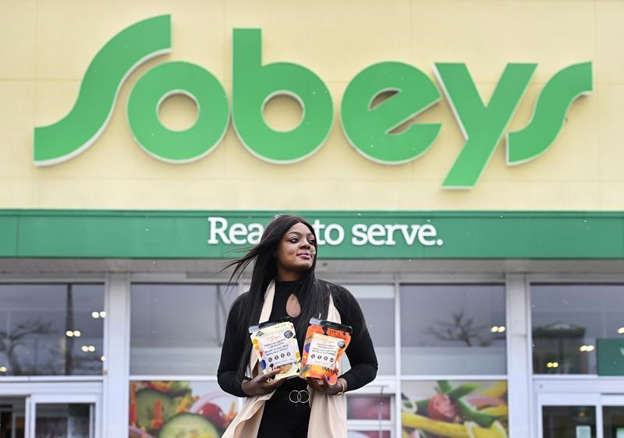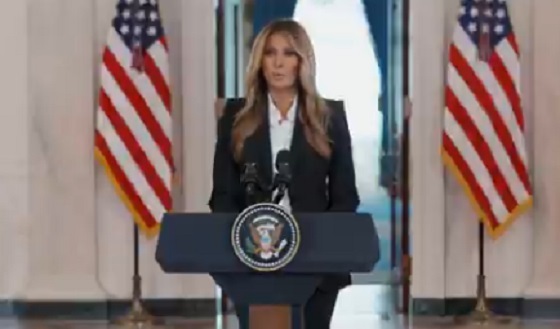Business
Trump’s Initial DOGE Executive Order Doesn’t Quite ‘Dismantle Government Bureaucracy’


From the Daily Caller News Foundation
By Thomas English
President Donald Trump’s Monday executive order establishing the Department of Government Efficiency (DOGE) presents a more modest scope for the initiative, focusing primarily on “modernizing federal technology and software.”
The executive order refashions the Obama-era United States Digital Service (USDS) into the United States DOGE Service. Then-President Barack Obama created USDS in 2014 to enhance the reliability and usability of online federal services after the disastrous rollout of HealthCare.gov, an insurance exchange website created through the Affordable Care Act (ACA). Trump’s USDS will now prioritize “modernizing federal technology and software to maximize efficiency and productivity” under the order, which makes no mention of slashing the federal budget, workforce or regulations — DOGE’s originally advertised purpose.
“I am pleased to announce that the Great Elon Musk, working in conjunction with American Patriot Vivek Ramaswamy, will lead the Department of Government Efficiency (‘DOGE’),” Trump said in his official announcement of the initiative in November. “Together, these two wonderful Americans will pave the way for my Administration to dismantle Government Bureaucracy, slash excess government regulations, cut wasteful expenditures, and restructure Federal Agencies.”
The order’s focus on streamlining federal technology and software stands in contrast to some of DOGE’s previously more expansive aims, including Elon Musk’s claim that “we can [cut the federal budget] by at least $2 trillion” at Trump’s Madison Square Garden rally in November. Musk now leads DOGE alone after Vivek Ramaswamy stepped down from the initiative Monday, apparently eying a 2026 gubernatorial run in Ohio.
The order says it serves to “advance the President’s 18-month DOGE agenda,” but omits many of the budget-cutting and workforce-slashing proposals during Trump’s campaign. Rather, the order positions DOGE as a technology modernization entity rather than an organization with direct authority to enact sweeping fiscal reforms. There is no mention, for instance, of trillions in budget cuts or a significant reduction in the federal workforce, though the president did separately enact a hiring freeze throughout the executive branch Monday.
“I can’t help but think that there’s more coming, that maybe more responsibilities will be added to it,” Susan Dudley, a public policy professor at George Washington University, told the Daily Caller News Foundation. Dudley, who was also the top regulatory official in former President George W. Bush’s administration, said the structure of the new USDS could impact the recent lawsuits against the DOGE effort.
“I think it maybe moots the lawsuit that’s been brought for it not being FACA,” Dudley said. “So if this is how it’s organized — that it’s people in the government who bring in these special government employees on a temporary basis, that might mean that the lawsuit doesn’t really have any ground.”
Three organizations — the American Federation of Government Employees (AFGE), National Security Counselors (NSC) and Citizens for Responsibility and Ethics in Washington (CREW) — separately filed lawsuits against DOGE within minutes of Trump signing the executive order. The suits primarily challenge DOGE’s compliance with the Federal Advisory Committee Act (FACA), alleging the department operates without the required transparency, balanced representation and public accountability.
The order also emphasizes not “be construed to impair or otherwise affect … the authority granted by law to an executive department or agency, or the head thereof; or the functions of the Director of the Office of Management and Budget relating to budgetary, administrative, or legislative proposals.”
“And the only mention of OMB [Office of Management and Budget] is some kind of boilerplate at the end — that it doesn’t affect that. But that’s kind of general stuff you often see in executive orders,” Dudley continued, adding she doesn’t “have an inside track” on whether further DOGE-related executive orders will follow.
“It’s certainly, certainly more modest than I think Musk was anticipating,” Dudley said.
Trump’s order also establishes “DOGE Teams” consisting of at least four employees: a team lead, a human resources specialist, an engineer and an attorney. Each team will be assigned an executive agency with which it will implement the president’s “DOGE agenda.”
It remains unclear whether Monday’s executive order comprehensively defines DOGE, or if additional orders will be forthcoming to broaden its mandate.
Business
UN, Gates Foundation push for digital ID across 50 nations by 2028

From LifeSiteNews
With 30 nations enrolled, the UN and Gates Foundation’s digital ID campaign signals accelerating efforts to create a global digital infrastructure that centralizes identity and data.
The 50-in-5 campaign to accelerate digital ID, fast payment systems, and data exchanges in 50 countries by 2028 reaches a 30 country milestone.
Launched in November 2023, the 50-in-5 campaign is a joint effort of the United Nations, the Bill and Melinda Gates Foundation, and their partners to rollout out at least one component of Digital Public Infrastructure (DPI) in 50 nations within five years.
DPI is a civic technology stack consisting of three major components: digital ID, fast payment systems, and massive data sharing between public and private entities.
30 countries have now joined the UN/Gates 50-in-5 DPI campaign to rollout Digital ID, Fast Payment Systems & Massive Data Exchanges between public & private entities https://t.co/dOYCfQHObt pic.twitter.com/yP6V7zxnUD
— Tim Hinchliffe (@TimHinchliffe) October 2, 2025
50-in-5 started with 11 first-mover countries, and with the count now at 30 the participating countries include:
Bangladesh, Brazil, Cambodia, Dominican Republic, Estonia, Ethiopia, France, Guatemala, Jamaica, Kazakhstan, Lesotho, Malawi, Mexico, Moldova, Nigeria, Norway, Senegal, Sierra Leone, Singapore, Sri Lanka, South Africa, South Sudan, Somalia, Togo, Trinidad and Tobago, Uganda, Ukraine, Uruguay, Uzbekistan, and Zambia.
The 50-in-5 campaign celebrated its 30-country milestone during a sideline event at the U.N. General Assembly in New York on September 22.
There, government officials, like Ukraine’s deputy prime minister, praised the work of 50-in-5 while the ministers of digital economy from Nigeria and Togo called for an interoperable digital identity system for the entire African continent.
Nigeria’s Minister of Communications, Innovation and Digital Economy Bosun Tijani said that each country could build their own digital identity scheme, but that they should all be interoperable with one another – demonstrating both the digital ID and data sharing as good potential use cases for DPI.
“Nations want to maintain their own ID databases, but I think we have a unique opportunity to apply strong data exchange system interoperability,” said Tijani.
“I think a digital identity system that can go with you wherever you are going on the African continent would be a fantastic example,” he added.
Nigeria's minister of Communications, Innovation & Digital Economy Bosun Tijani calls for Digital ID to be interoperable across all Africa: "A digital identity system that can go with you wherever you go on the African continent will be fantastic." 50-in-5 https://t.co/dOYCfQHObt pic.twitter.com/KB380uQrmd
— Tim Hinchliffe (@TimHinchliffe) October 2, 2025
In March 2025, the Nigerian government published a framework to develop national Digital Public Infrastructure that would leverage digital ID to track and trace “key life events” of every citizen from the cradle to the grave.
“Throughout a citizen’s life, from birth to old age, there are marked moments of significant life events requiring support or service from the government,” the paper begins.
“Some of these services include registration of births, antenatal healthcare, vaccines, school enrollment, scholarships, health insurance for business registrations, filing of taxes, etc.”
These “life events” require every citizen to have a digital ID:
The Federal Government of Nigeria is on a mission to appropriately deploy digital technology to support Nigerians through these significant and profound moments so they can integrate into the state and enjoy the benefits of citizenhood from cradle to old age.

Back at the 50-in-5 milestone event, Togo’s Minister of Digital Economy and Transformation Cina Lawson called for a free, cross-border, interoperable digital ID powered by the Modular Open Source Identity Platform (MOSIP).
MOSIP is a Gates-funded platform that “helps govts & other user organizations implement a digital, foundational identity system.”
Said Lawson, “We’ve initiated conversations with our neighbors, namely Benin, to have interoperability of our ID systems, but also Burkina Faso and other countries such as Senegal, because we’re using MOSIP platform, so what we do is that we host meetings of countries that are interested the platform, so that we could see how we [are] operating it and so on.”
“Our ID system, using the MOSIP platform, is really the ID that the majority of the Togolese will have because first of all it’s free, it doesn’t require to show proof of citizenship, and so on, so that is the ID card of the poorest of the Togolese,” she added.
Togo’s Minister of Digital Economy & Transformation Cina Lawson calls for free, cross-border, interoperable Digital ID using Gates-funded MOSIP platform. UN/Gates 50-in-5 event https://t.co/dOYCfQHObt pic.twitter.com/wPC4vpms9l
— Tim Hinchliffe (@TimHinchliffe) October 2, 2025
Lawson also spoke at the 50-in-5 launch event in November 2023, where she explained that Togo’s DPI journey began with the arrival of COVID-19.
First, the government set up a digital payments system within 10 days.
“We deployed it, and we were able to pay out 25 percent of all Togolese adults, and we distributed $34 million that the most vulnerable Togolese received directly through their mobile phones,” said Lawson.
Then, came vaccine passports.
“We created a digital COVID certificate. All of a sudden, the fight against the pandemic became really about using digital tools to be more effective,” she added at the time.
Today, Togo became the first sub-Saharan African country whose digital COVID-19 vaccination certificate is recognized by the @eu_commission. Travelers with a Togolese certificate will be able to validly present it in the EU & vice versa. @AmbUETogo @KoenDoens pic.twitter.com/Uy9mRF8bkU
— Cina Lawson (@cinalawson) November 24, 2021
To get an idea where DPI is heading, Ukraine’s Deputy Prime Minister Myhailo Fedorov gave a pre-recorded speech for the 50-in-5 milestone event, saying that his country was successful in building “the state in a smartphone” via the DIIA app, which had reached 23 million users.
“For every citizen, government should be simple, convenient, nearly invisible, and accessible in just a few clicks,” said Fedorov.
“Today, 23 million people use the DIIA app […] Since the launch of DIIA in 2020, Ukrainians and the state have saved about $4.5 billion to date.”
“This is the combined anti-corruption and economic effect of digitalizing services.”
“For us, it’s powerful proof of DIIA’s efficiency and the real impact of building a digital state,” he added.
Ukraine Deputy PM Mykhailo Fedorov praises DIIA Digital ID app, with 23M users, for being a "STATE IN A SMARTPHONE" & "BUILDING AN (INVISIBLE) DIGITAL STATE." An "ANTI-CORRUPTION/ECONOMIC EFFECT OF DIGITALIZING SERVICES." Includes "ONLINE MARRIAGE" 50-in-5 https://t.co/dOYCfQHObt pic.twitter.com/MUFwbW4Yyy
— Tim Hinchliffe (@TimHinchliffe) October 3, 2025
Speaking at the World Economic Forum (WEF) Global Technology Governance Summit on April 7, 2021, Fedorov told the panelists of the “Scaling Up Digital Identity Systems” session, that it was Ukraine’s goal to “enable all life situations with this digital ID.”
“The pandemic has accelerated our progress […] People have no choice but to trust technology,” Fedorov said at the time.
“We have to make a product that is so convenient that a person will be able to disrupt their stereotypes, to break through from their fears, and start using a government-made application,” he added.
The 50-in-5 campaign is a collaboration between the Bill and Melinda Gates Foundation, the United Nations Development Program, the Digital Public Goods Alliance, the Center for Digital Public Infrastructure, and Co-Develop; with support from GovStack, the Inter-American Development Bank, and UNICEF.
The Center for Digital Public Infrastructure is backed by Co-Develop and Nilekani Philanthropies.
Nandan Nilekani is one of the architects of India’s digital identity system, Aadhaar.
Co-Develop was founded by The Rockefeller Foundation, the Bill & Melinda Gates Foundation, Nilekani Philanthropies, and the Omidyar Network.
The Omidyar Network is a funder of MOSIP.
The Digital Public Goods Alliance lists both the Gates and Rockefeller foundations in its roadmap showcasing “activities that advance digital public goods,” along with other organizations and several governments.
At last year’s Summit of the Future, 193 nations agreed to the non-binding “Pact for the Future,” which dedicates a section in its annex, the “Global Digital Compact,” to implement DPI in member states.
One year later, the U.K. announced it was going to force Britons into mandatory digital ID schemes under the guise of combatting illegal immigration.
Reprinted with permission from The Sociable.
Business
Netherlands Seizes Chinese-Owned Chipmaker in Unprecedented Security Move

Court-approved removal of executive Zhang Xuezheng bears hallmarks of counter-intelligence concern
The Dutch government has taken control of Chinese-owned semiconductor manufacturer Nexperia, invoking an urgent national-security law directed at Beijing to safeguard Europe’s access to critical technology used across the automotive and electronics industries.
In a statement issued late Sunday, the Ministry of Economic Affairs said it had taken the “highly exceptional” decision to invoke the Goods Availability Act on September 30. The move followed “recent and acute signals” of such “significant scale and urgency” involving “serious governance shortcomings and actions within Nexperia” that Minister Vincent Karremans was compelled to intervene.
“The decision aims to prevent a situation in which the goods produced by Nexperia would become unavailable in an emergency,” the ministry said.
“These signals posed a threat to the continuity and safeguarding on Dutch and European soil of crucial technological knowledge and capabilities. Losing these capabilities could pose a risk to Dutch and European economic security.”
It is not known what specific information Dutch authorities gathered on Nexperia executive Zhang Xuezheng, who has been suspended from all management and board positions, but the move, approved by the Amsterdam Court of Appeal, has the hallmarks of a national security alert deemed severe by Dutch lawmakers.
Nexperia, headquartered in Nijmegen, produces semiconductors used widely in the European automotive industry and consumer electronics and is a key link in the continent’s industrial supply chain. The government said normal production will continue, but Karremans now has powers to block or reverse company decisions that could harm national or European interests.
The ministry’s order bars Nexperia and all its global subsidiaries, branches, and offices from making any adjustments to their assets, intellectual property, business operations, or personnel for one year.
Nexperia’s Chinese parent company, Wingtech Technology Co., a Shanghai-listed conglomerate placed on the U.S. Commerce Department’s Entity List in 2023, denounced the Dutch move, saying it “constitutes an act of excessive interference driven by geopolitical bias, not by fact-based risk assessment.” Wingtech said the measure “gravely contravenes the European Union’s long-standing advocacy for market-economy principles, fair competition, and international trade norms,” and “strongly” protested “discriminatory treatment toward a Chinese-owned enterprise.”
Wingtech disclosed to the Shanghai Stock Exchange that it had been notified of the Dutch order on September 30, but the government did not make the intervention public until October 12.
The Dutch government’s action marks the first time the Netherlands has used its emergency powers to seize control of Chinese-state linked company — an escalation that mirrors Washington’s strategic-industrial posture and signals Europe’s entry into a new era of techno-sovereignty.
In Britain, Nexperia’s ownership structure had already triggered alarm. In 2021, the company’s acquisition of Newport Wafer Fab, the UK’s largest semiconductor plant, was blocked by the Conservative government over national-security fears. The UK later ordered Nexperia to divest most of its stake under the National Security and Investment Act in 2022.
The controversy resurfaced this year amid the collapse of a high-profile espionage prosecution under Prime Minister Keir Starmer’s government. The Mail on Sunday reported, citing an unidentified source, that Christopher Berry—one of two men previously charged with spying for China—“sent details of the row within government on the Newport Wafer Fab semiconductor factory, which was initially sold to Nexperia but later blocked by the Conservative government over national-security fears.”
The Netherlands’ intervention follows escalating moves by allied governments to tighten control over critical-tech supply chains. Just days earlier, Beijing imposed sweeping export restrictions on rare-earth minerals, essential for cars, wind turbines, and electronics, citing “national security” grounds — mirroring Western justifications for semiconductor controls. The action drew a strong counter-threat from U.S. President Donald Trump, who warned that Washington could impose 100 percent additional tariffs on all Chinese goods if Beijing “weaponizes its mineral dominance.”
A semi-detente appeared to emerge after Trump’s weekend remarks suggesting a pause in escalation. But the Dutch government’s unilateral action underscores a global race to secure access to critical industrial components amid fears of spreading conflict in Europe and rising tensions in Asia.
The Bureau is a reader-supported publication.
To receive new posts and support my work, consider becoming a free or paid subscriber.
-

 Media1 day ago
Media1 day agoResponse to any budget sleight of hand will determine which audience media have decided to serve
-

 Frontier Centre for Public Policy1 day ago
Frontier Centre for Public Policy1 day agoCanada’s Democracy Is Running On Fumes
-

 Business1 day ago
Business1 day agoYour $350 Grocery Question: Gouging or Economics?
-

 Education1 day ago
Education1 day agoClassroom Size Isn’t The Real Issue
-

 illegal immigration22 hours ago
illegal immigration22 hours ago$4.5B awarded in new contracts to build Smart Wall along southwest border
-

 International22 hours ago
International22 hours agoMelania Trump quietly reunites children divided by Ukraine war
-

 International5 hours ago
International5 hours agoHamas releases all living hostages under Trump peace plan
-

 Business5 hours ago
Business5 hours agoTruckers see pay surge as ICE sweeps illegal drivers off U.S. highways








